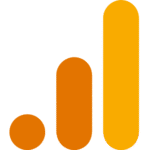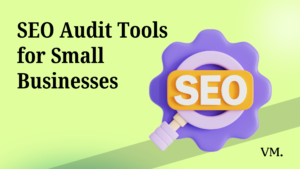Let’s talk about local SEO tools for D2C brands. Direct-to-Consumer (D2C) brands are continually seeking innovative strategies to connect with their target audiences. While national and international reach is often a primary focus, the power of local engagement cannot be overstated.
For D2C brands with physical storefronts, pop-up shops, or those serving specific geographic regions, optimizing for local search is not just an advantage—it’s a necessity.
This comprehensive review delves into the best local SEO tools for D2C brands in 2025, offering insights into how these platforms can elevate your local visibility, drive customer acquisition, and ultimately, boost your bottom line.
The Unique Local SEO Landscape for D2C Brands
D2C brands operate in a unique space, often blending online sales with a growing physical presence. This hybrid model necessitates a nuanced approach to local SEO. Unlike traditional brick-and-mortar businesses, D2C brands must seamlessly integrate their online brand identity with their local physical touchpoints. Key considerations for D2C brands navigating the local SEO landscape include:
Brand Consistency Across Channels: Ensuring that brand messaging, product availability, and customer service are consistent whether a customer interacts online or at a physical location.
Leveraging Online Reviews for Local Trust: Online reviews are paramount for local trust. D2C brands need robust strategies to encourage, manage, and respond to reviews across various local platforms.
**Optimizing for
Google Business Profile (GBP): GBP is often the first point of contact for local customers. D2C brands must optimize their GBP listings with accurate information, engaging content, and timely updates. * Hyper-local Targeting: Beyond general city-level targeting, D2C brands can benefit from hyper-local strategies that focus on specific neighborhoods or even street-
level visibility. * Scalability of Solutions: As D2C brands grow and potentially expand their physical footprint, their local SEO tools must be able to scale efficiently without becoming cost-prohibitive.
Essential Features in Local SEO Tools for D2C Brands
When evaluating local SEO tools for D2C brands, several core features stand out as critical for success:
Local Rank Tracking: The ability to monitor search rankings at a granular, hyper-local level (e.g., by neighborhood or even specific addresses) is crucial for understanding local visibility.
Google Business Profile (GBP) Management: Tools that facilitate bulk updates, post scheduling, review management, and Q&A responses for multiple GBP listings are invaluable.
Citation and Listing Management: Ensuring consistent Name, Address, and Phone Number (NAP) information across a multitude of online directories and platforms is fundamental for local SEO.
Review and Reputation Management: Features for soliciting, monitoring, and responding to customer reviews are essential for building trust and improving local search rankings.
Competitor Analysis: Understanding the local SEO strategies of competitors can provide valuable insights and identify opportunities for improvement.
Reporting and Analytics: Comprehensive reporting features that demonstrate the ROI of local SEO efforts are vital for D2C brands to track their progress and make data driven decisions.
Top Local SEO Tools for D2C Brands in 2025
Based on our research, here are some of the leading local SEO tools for D2C brands in 2025, categorized by their primary strengths:
All-in-One Local SEO Platforms
These platforms offer a holistic approach to local SEO, integrating multiple functionalities into a single dashboard.
Positioning: Local Dominator is designed with agencies in mind, emphasizing workflow efficiency and hyper-accurate geo-grid rank tracking. Its focus on granular data makes it particularly appealing for D2C brands looking for precise local insights.
Key Features for D2C:
Hyper-accurate Geo-grid Rank Tracking: Provides street-level visibility into search performance, allowing D2C brands to pinpoint their local strengths and weaknesses.
Integrated GBP Management Suite: Streamlines the process of scheduling geo-tagged posts, managing customer reviews, and deploying strategic updates directly from the platform.
Scan Analyzer: Offers immediate audits of a client’s local presence, identifying critical issues that can be addressed proactively.
Upcoming SERP Tracker: Promises to move beyond simple rank tracking to analyze the entire competitive landscape, offering a more comprehensive view for D2C brands.
Considerations for D2C: While agency-focused, its robust tracking and GBP management features are highly beneficial for D2C brands with a significant local presence. The pricing structure, with a Lite plan and a Powerhouse plan, offers scalability.
Positioning: A long-standing veteran in the local SEO space, BrightLocal offers a comprehensive suite of tools that have become an industry standard. It’s known for its extensive features, though its all-in-one nature can present a learning curve.
Key Features for D2C:
Comprehensive Auditing: Provides detailed audits of citations, NAP consistency, and Google Business Profile listings, crucial for maintaining accurate online information.
White-label Reporting: Useful for D2C brands that might work with marketing agencies or need to present clear, branded reports internally.
Extensive Rank Tracking: Tracks hundreds of keywords across major search engines, offering a broad overview of local search performance.
Citation Building and Cleanup: Manually fixes and builds citations on a vast network of sites, ensuring consistent business information.
Online Review Monitoring: Monitors reviews across 20 platforms, including key social media and review sites, vital for reputation management.
Considerations for D2C: BrightLocal’s extensive feature set makes it a powerful option for D2C brands seeking a comprehensive solution. Its tiered pricing allows for flexibility, though some proactive features require higher-tier plans.
Positioning: Semrush Local is offered as a standalone product within the broader Semrush ecosystem, focusing specifically on local marketing tasks. It’s a direct competitor to other
local-first platforms, offering a blend of listing management, rank tracking, and review management.
Key Features for D2C:
Extensive Listing Management: Supports 150+ directories worldwide, enabling D2C brands to distribute and manage consistent business information (NAP) across various local directories.
AI-Powered Review Management: Monitors, analyzes, and facilitates responses to Google Business Profile reviews, with AI-generated suggestions and auto-replies for efficiency.
Map Rank Tracker: Provides a clear view of rankings in Google Maps and allows for competitive analysis based on potential customer search locations.
On-Page SEO Checker: Offers recommendations for optimizing website content for local search, including meta titles and descriptions.
Considerations for D2C: Semrush Local provides a robust set of features for D2C brands, particularly those already familiar with the Semrush platform. The tiered pricing, with features like listing management only available at higher tiers, should be considered.
Specialized Local SEO Tools
For D2C brands that may not need an all-in-one solution or prefer to combine best-of-breed tools, these specialized options offer focused functionalities.
Positioning: As a free and essential tool provided by Google, GBP is the cornerstone of local SEO. It’s the primary way businesses appear in local search results and on Google Maps.
Key Features for D2C:
Local 3-Pack Visibility: Crucial for appearing in the highly visible local 3-pack section of Google search results.
Business Information Management: Allows D2C brands to provide comprehensive details about their business, including services, hours, and photos.
Q&A Feature: An opportunity to proactively address common customer questions and provide additional information.
Review Collection and Management: Facilitates the collection of customer reviews, which are vital for building prominence and trust.
Considerations for D2C: While free, effective GBP management requires consistent effort to keep information updated, respond to reviews, and utilize all available features. It’s a foundational tool that complements any other local SEO solution.
Positioning: GrowthBar is a versatile SEO tool with strong capabilities in keyword research, making it valuable for D2C brands looking to optimize their content for local search terms.
Key Features for D2C:
Local Keyword Research: Helps identify the specific keywords local audiences are searching for, enabling D2C brands to tailor their website content and GBP listings.
Keyword Ranking Tracker: Monitors the performance of targeted keywords, allowing D2C brands to assess the effectiveness of their local SEO efforts.
Competitor Research: Provides insights into competitors’ keyword strategies and backlinks, offering opportunities for competitive advantage.
On-Page Audit and Optimization: Guides D2C brands in optimizing their website pages for local relevance.
Considerations for D2C: GrowthBar is an excellent choice for D2C brands prioritizing content optimization and keyword strategy for local search. Its broader SEO features can also benefit overall digital marketing efforts.
Positioning: Yext specializes in digital knowledge management, ensuring consistent business information across a vast network of online platforms. This is critical for D2C brands to maintain accuracy and prominence.
Key Features for D2C:
Extensive Listing Syndication: Distributes business information to over 200 platforms, including search engines, social media sites, and directories, ensuring wide reach.
Centralized Information Management: Allows D2C brands to update business information (e.g., opening hours) across all listings from a single dashboard, saving time and preventing inconsistencies.
Online Review Management: Facilitates proactive review requests, aggregates reviews from various platforms, and provides tools for sentiment analysis.
Considerations for D2C: Yext is particularly beneficial for D2C brands with multiple locations or those needing to manage a large number of online listings. Its strength lies in ensuring data accuracy and widespread visibility.
Positioning: UberAll is designed for multi-location businesses, leveraging AI to automate various local SEO tasks and streamline management across numerous physical touchpoints.
Key Features for D2C:
Multi-Location Management: Centralized dashboard for managing local SEO efforts across all D2C brand locations.
AI-Powered Automation: Utilizes AI for tasks such as image compression, matching street addresses with location coordinates, personalizing review responses, and analyzing visibility.
Comprehensive Listing and Review Management: Offers robust features for managing online listings and customer reviews at scale.
Considerations for D2C: UberAll is ideal for D2C brands with a growing number of physical locations, as its AI-driven automation can significantly reduce the manual effort involved in local SEO management.
Positioning: WhiteSpark offers specialized local SEO services, allowing D2C brands to choose specific functionalities they need, such as reputation management or citation building.
Key Features for D2C:
Reputation/Review Management: Helps D2C brands monitor and manage their online reviews effectively.
Local Citation Opportunities Discovery: Identifies new opportunities for building citations, expanding the brand’s online footprint.
Local Rank Tracking: Monitors local search rankings to assess performance.
Google Business Profile Management: Assists in optimizing and managing GBP listings.
Free Review Checker: A valuable tool for quickly assessing reviews across multiple platforms.
Considerations for D2C: WhiteSpark’s à la carte service model can be cost-effective for D2C brands that have specific local SEO needs and prefer not to invest in a full-suite platform.
Positioning: While not a dedicated local SEO tool, Google Analytics is indispensable for D2C brands to understand how their local SEO efforts translate into website traffic and user behavior.
Key Features for D2C:
Traffic Source Analysis: Identifies where website visitors are coming from, including local search and GBP referrals.
User Behavior Insights: Provides data on bounce rates, dwell time, and conversion paths, helping D2C brands optimize their website content for local audiences.
Geographic Reporting: Offers insights into the geographic distribution of website visitors, allowing for more targeted local SEO strategies.
Considerations for D2C: Google Analytics provides the crucial data needed to measure the impact of local SEO strategies and make informed adjustments. It’s a free tool that should be integrated into every D2C brand’s analytics stack.
Building Your Local SEO Stack for D2C Success
The optimal local SEO stack for a D2C brand depends on its size, budget, and specific goals. Here are a few archetypes:
The Bootstrap Stack (Under $30/month):
Ideal for new or small D2C brands with limited budgets. This stack primarily relies on free tools and cost-effective specialized solutions.
-
Core: Google Business Profile (Free) – Essential for basic local presence and review management.
-
Augmentation: PlePer (Chrome extension, ~ $1.50/month) for competitor insights, and Local Falcon Starter Plan ($24.99/month) for basic geo-grid tracking.
-
Verdict: A manual but mighty approach. It requires more time and effort for data consolidation and management, but it’s a solid starting point for foundational local SEO.
The Small Business Growth Stack (~$200/month):
Suitable for growing D2C brands with 1-5 locations, focused on scalable growth and centralizing data.
-
Core: Local Dominator Pro plan ($97/month for up to 25 GBP connections) or BrightLocal Grow plan (approx. $119/month for 10 locations) – providing integrated rank tracking, review management, and listing syndication.
-
Augmentation: GrowthBar (starts at $36/month) for advanced keyword research and on-page optimization.
-
Verdict: This stack offers a significant upgrade in efficiency and data consolidation, moving away from fragmented tools to a single source of truth. It empowers D2C brands to make smarter strategic decisions and focus on growth.
The Agency Pro Stack ($230+/month):
Designed for larger D2C brands or those with extensive multi-location operations, prioritizing efficiency and high-impact distribution.
-
Core: Local Dominator Powerhouse plan ($197/month) – serving as the daily driver for review responses, GBP updates, multi-client rank tracking, and white-label reporting.
-
Augmentation: Moz Local Elite plan ($33/month) for broad, automated distribution of client citation data and automated duplicate deletion. Alternatively, UberAll for its AI-powered multi-location management capabilities.
-
Verdict: This is the ultimate model for D2C brands seeking a scalable, client-facing solution. It combines a powerful core platform with specialized tools for specific, high-leverage tasks, maximizing efficiency and results.
Future Trends in Local SEO for D2C Brands
As we look towards the future, several trends will continue to shape the local SEO landscape for D2C brands:
Increased AI Integration: Expect more sophisticated AI-powered features for content generation, personalized customer interactions, and predictive analytics in local SEO tools.
Voice Search Optimization: With the rise of smart speakers and voice assistants, optimizing for conversational queries and local voice search will become even more critical.
Enhanced Personalization: Local search results will become increasingly personalized based on user behavior, location history, and preferences, requiring D2C brands to focus on hyper-relevant content.
Visual Search and Augmented Reality: The integration of visual search and AR in local discovery will open new avenues for D2C brands to showcase their products and physical locations.
Sustainability and Local Sourcing: Consumers are increasingly prioritizing sustainable and locally sourced products. D2C brands that highlight these aspects in their local SEO efforts will gain a competitive edge.
Wrapping It Up
For D2C brands, mastering local SEO is no longer optional; it’s a strategic imperative. The best local SEO tools for D2C in 2025 offer a diverse range of functionalities, from all-in-one platforms providing comprehensive solutions to specialized tools excelling in specific areas.
By carefully evaluating their unique needs, budget, and growth trajectory, D2C brands can assemble a powerful local SEO stack that drives visibility, fosters customer engagement, and ultimately, fuels sustainable growth in an increasingly localized digital world.
FAQ
Why is local SEO important for D2C brands?
Local SEO is crucial for D2C brands because it helps them connect with customers in specific geographic areas. Even if a D2C brand primarily sells online, having physical touchpoints like pop-up shops, showrooms, or even local warehouses means optimizing for local search can drive foot traffic, increase local brand awareness, and boost sales within those regions. It allows D2C brands to capture demand from consumers actively searching for products or services
What are the key features to look for in local SEO tools for D2C brands?
When selecting local SEO tools, D2C brands should prioritize features such as granular local rank tracking (ideally at a street or neighborhood level), robust Google Business Profile (GBP) management capabilities (including bulk updates, post scheduling, and review responses), comprehensive citation and listing management to ensure NAP consistency, effective review and reputation management tools, and competitor analysis features. Scalability and integration with existing marketing systems are also vital considerations for D2C brands looking for efficient local SEO tools D2C.
What is the difference between all-in-one and specialized local SEO tools?
All-in-one local SEO platforms, like Local Dominator, BrightLocal, or Semrush Local, offer a comprehensive suite of functionalities under a single dashboard, covering various aspects from rank tracking to review management. They are designed for convenience and integrated workflows. Specialized tools, on the other hand, focus on a particular aspect of local SEO, such as keyword research (GrowthBar), listing syndication (Yext), or duplicate listing removal (Moz Local). D2C brands can choose an all-in-one solution for a holistic approach or combine specialized tools to create a customized stack based on their specific needs and budget.
How important is Google Business Profile (GBP) for D2C local SEO?
Google Business Profile (GBP) is extremely important for D2C local SEO. It serves as the primary gateway for local customers to find and interact with your brand on Google Search and Maps. An optimized GBP listing can significantly improve visibility in the local 3-pack, provide essential business information, facilitate customer engagement through Q&A, and allow for the collection of valuable customer reviews. It is a foundational element of any local SEO strategy for D2C brands, even if it’s a free tool.
Can AI help with local SEO for D2C brands?
Yes, Artificial Intelligence (AI) is increasingly playing a significant role in local SEO for D2C brands. AI-powered features are being integrated into local SEO tools to automate tasks such as generating personalized review responses, optimizing images for various directories, matching street addresses with precise location coordinates, and providing advanced visibility analysis. Tools like UberAll leverage AI for multi
location management, and even general AI models like ChatGPT can assist in generating content for GBP Q&A sections, making local SEO efforts more efficient and effective for D2C brands.
What are some emerging trends in local SEO for 2025 that D2C brands should be aware of?
Several emerging trends are shaping local SEO for D2C brands in 2025. These include increased AI integration for more sophisticated automation and analytics, the growing importance of voice search optimization for conversational queries, enhanced personalization of local search results based on user behavior, and the potential impact of visual search and augmented reality in local discovery. Additionally, D2C brands that emphasize sustainability and local sourcing in their local SEO efforts are likely to gain a competitive edge as consumer preferences shift towards these values.












